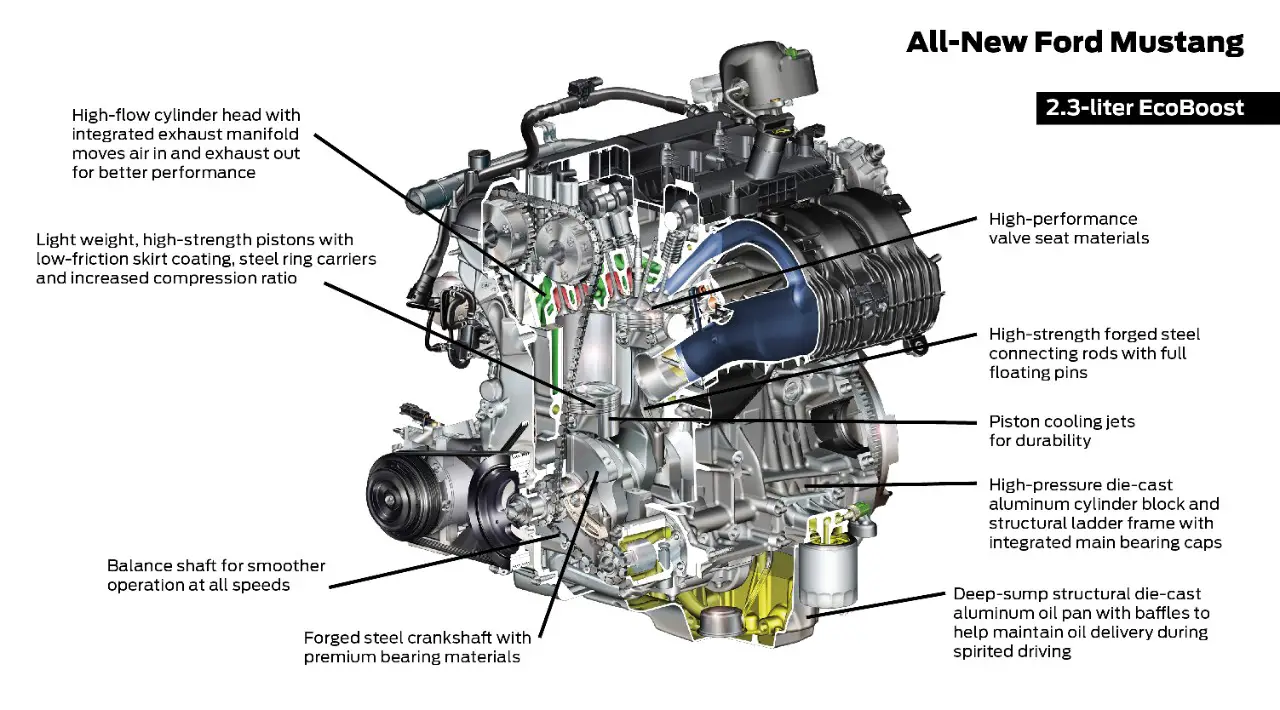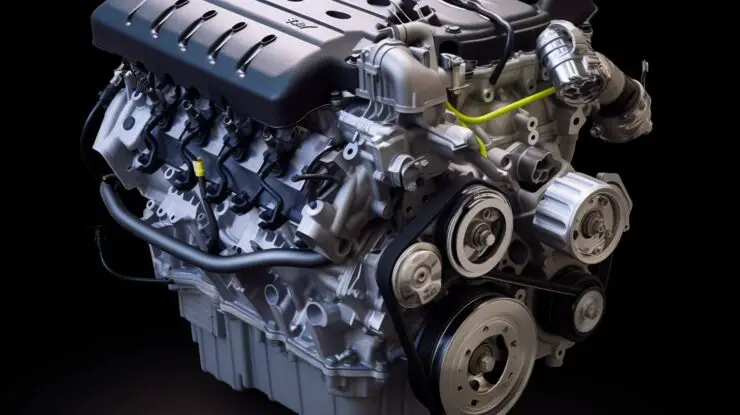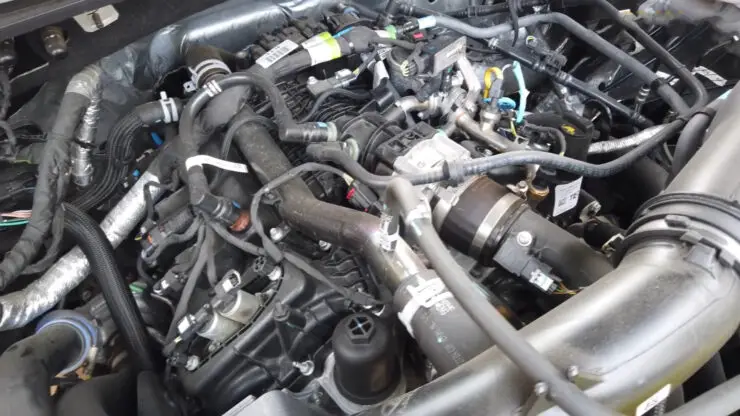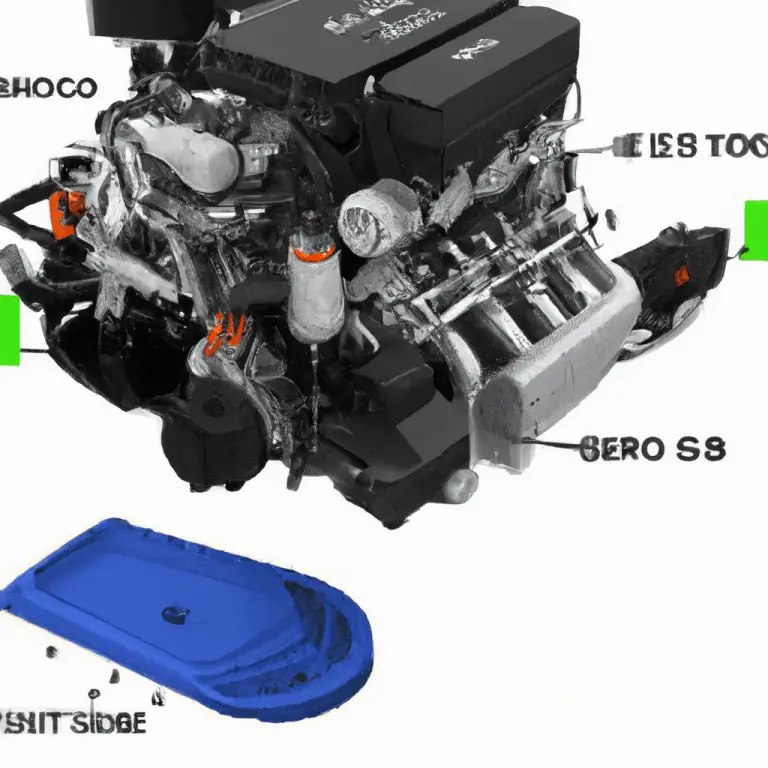Understanding Oil Requirements for a 2.7 Ecoboost Engine: A Comprehensive Guide
Ensuring that your vehicle runs smoothly and efficiently requires a keen understanding of its specific maintenance needs. In the universe of engines, the 2.7 Ecoboost engine stands as a distinct entity with unique oil requirements that can vastly impact its performance and lifespan. This article, “Understanding Oil Requirements for a 2.7 Ecoboost Engine: A Comprehensive Guide”, dives into the specifics of this pivotal aspect of maintenance. From understanding the oil capacity of a 2.7 Ecoboost to knowing the right oil type suitable for its optimal performance, I intend to shed light on crucial factors that every 2.7 Ecoboost owner or mechanic should have at their fingertips. I also aim to provide practical tips that will guide readers on how best to keep their engines operating at their maximum potential.

Understanding the 2.7 Ecoboost Engine
History and Description of the 2.7 Ecoboost Engine
The 2.7 Ecoboost Engine, a member of the Ford Ecoboost family, was introduced to the public in 2015. This twin-turbocharged, direct-injected gasoline engine was created to combine efficiency and performance in a high-powered package. It was initially designed for use in the Ford F-150 and has since been integrated into various other Ford vehicles. Its compact design and impressive power output have earned it a well-deserved reputation in the automotive industry.
Key Features of the 2.7 Ecoboost Engine
One of the primary features of the 2.7 Ecoboost engine is its all-aluminum construction, which reduces weight while improving fuel efficiency. The integrated start-stop technology aids in saving fuel by automatically shutting off the engine when the vehicle comes to a halt and restarting when the brake is released. Besides, the engine’s twin independent variable cam timing (Ti-VCT) allows it to adjust the camshafts as needed, optimizing performance at every rpm.
Performance Metrics of the 2.7 Ecoboost Engine
The 2.7 Ecoboost engine is capable of generating up to 325 horsepower and 375 lb-ft of torque, providing powerful performance. It is known for its quick throttle response and remarkable speed. Despite these hefty performance metrics, the engine remains fuel-efficient.
Importance of Proper Oil Selection
Role of Oil in Engine Performance
Engine oil plays a vital role in ensuring smooth and efficient engine performance. It lubricates the engine’s internal components, preventing wear and tear due to friction. Additionally, it serves as a coolant, helping to disperse heat and maintain an optimal engine temperature.
Consequences of Improper Oil Selection
Choosing the wrong oil can have dire consequences for your engine. Inappropriate oil can lead to increased friction, causing excessive wear and ultimately, engine damage. Moreover, using oil with incorrect viscosity can affect the engine’s efficiency and performance.
Understanding Oil Viscosity and Ratings
Oil viscosity refers to the oil’s resistance to flow. Higher viscosity oils are more resistant to flow and are suitable for warm conditions, whereas lower viscosity oils flow more easily, ideal for colder conditions. An oil’s rating denotes its viscosity characteristics. For example, a 5W-30 rating means that the oil behaves like a 5-weight oil in cold temperatures and a 30-weight oil at normal engine operating temperature.
Recommended Oil Type for a 2.7 Ecoboost Engine
Manufacturer’s Recommendation
For the 2.7 Ecoboost engine, Ford recommends using 5W-30 synthetic oil. Synthetic oil is more refined and provides superior protection against engine wear, especially in extreme weather conditions or under heavy loads.
Oil Type Based on Environment Conditions
The environment in which you drive your vehicle can influence the type of oil you should use. For instance, in colder climates, a low viscosity oil like 5W-30 is preferred as it circulates faster, providing instant lubrication to the engine. In hotter climates, a higher viscosity oil might be needed.
Understanding the Difference Between Synthetic and Conventional Oil
Synthetic oil, though more expensive, has several advantages over conventional oil. It is more stable at high temperatures, provides better protection, and can improve fuel efficiency. Conventional oil, on the other hand, tends to degrade faster under extreme conditions.
Oil Capacity of the 2.7 Ecoboost Engine
Manufacturer’s Stated Oil Capacity
The manufacturer-stated oil capacity for the 2.7 Ecoboost engine is six quarts with a filter change.
Factors Influencing Oil Capacity
Few factors can influence the engine’s oil capacity, including the oil filter size and engine wear. A larger oil filter could potentially increase the oil capacity slightly, while engine wear could decrease it due to oil being retained in the engine.
Checking the Oil Level Correctly
To accurately check the oil level, park the car on level ground and wait for the engine to cool down. Remove the dipstick, wipe it clean, then reinsert it fully before pulling it out again to read the oil level.

Changing the Oil in a 2.7 Ecoboost Engine
Tools and Ingredients Needed
In addition to the right engine oil, you will need an oil filter, drain plug washer, oil drain pan, socket set, oil filter wrench, and funnel.
Step-by-Step Guide to Changing Oil
Start by warming up the engine for a couple of minutes. Ensure you are wearing protective gloves, then place the oil drain pan beneath the drain plug and remove it using the socket set. Allow all the used oil to drain out before replacing the drain plug and installing a new washer. Remove the old oil filter, ensuring the gasket comes off with it, then apply a light coating of new oil on the gasket of the new oil filter before installing. Lastly, pour the new oil into the engine using a funnel, then check the oil level.
Safety Precautions While Working On Your Engine
Ensure the engine is not too hot to avoid burns. Use jack stands if you have to raise the vehicle and avoid smoking or any flames while working.
Choosing the Right Oil Filter
Importance of a Quality Oil Filter
A quality oil filter is crucial as it traps particles and impurities in the oil, preventing them from damaging the engine.
Recommended Oil Filters for a 2.7 Ecoboost Engine
It is advisable to use Ford’s recommended oil filters, as they are designed to meet the precise specifications of the 2.7 Ecoboost engine.
Changing the Oil Filter: A Brief Guide
To change the oil filter, first, remove the old one. Before installing the new filter, apply a small amount of new oil to the gasket to ensure a proper seal. Screw the new filter in place and ensure it’s secure.

Maintenance Schedule for a 2.7 Ecoboost Engine
Manufacturer’s Recommended Maintenance Schedule
The manufacturer recommends changing the oil in a 2.7 Ecoboost engine every 7,500-10,000 miles, or every six months, whichever comes first.
Signs Your Engine Needs an Oil Change
Possible signs showing your engine needs an oil change include dark and dirty oil, louder engine noise and knocking, oil change light or check engine light is on, and reduced fuel efficiency.
Maintenance Schedule Based on Driving Habits and Conditions
Depending on your driving habits and the conditions in which you drive, the maintenance schedule may vary. You may need to change your oil more frequently if you regularly pull heavy loads, drive in dusty areas, or make lots of short trips.
Troubleshooting Oil-Related Issues on a 2.7 Ecoboost Engine
Common Oil-Related Engine Problems
Common oil-related problems on a 2.7 Ecoboost engine include oil leaks, burned oil smell, oil pressure dropping, and the engine running rougher than usual.
Signs Your Engine May Be Experiencing Oil-Related Issues
Signs of potential oil-related issues include reduced fuel efficiency, increased engine noise, poor performance, and a warning light on the dashboard.
Solutions and Remedies for Oil-Related Engine Problems
The first step in addressing oil-related issues is identifying the cause. An oil leak can often be sealed, while worn engine parts may require replacement. A quality synthetic oil can help mitigate some problems, such as reduced fuel efficiency or increased engine noise.

Benefits of Regular Oil Change in a 2.7 Ecoboost Engine
Improvements in Engine Performance
One of the primary benefits of regular oil changes is improvements in engine performance. Clean oil provides better lubrication, reducing friction within the engine and thereby enhancing its performance.
Increased Fuel Efficiency
Regular oil change can also lead to increased fuel efficiency. The engine runs more smoothly with clean oil, which can lead to less fuel consumption.
Longevity and Durability of the Engine
Regular oil changes help extend the longevity and durability of your engine. It reduces wear and tear on the engine’s components, helping to prevent costly repairs and extending the engine’s life.
High-Quality Oil Brands Recommended for 2.7 Ecoboost Engine
Review and Comparison of Oil Brands
When it comes to engine oils, brands such as Mobil 1, Pennzoil, and Castrol are highly recommended. These brands have been shown to offer excellent engine protection and performance.
Choosing the Cost-Effective Brand Without Compromising Quality
While the cost of engine oil is a factor to consider, it is essential not to compromise on quality. A higher-priced synthetic oil may provide better overall value in terms of engine protection and performance.
Where to Buy the Best Engine Oil for 2.7 Ecoboost Engines
The best engine oil for your 2.7 Ecoboost engine can be purchased from automotive parts retailers, department stores, or online. Remember to consider the manufacturer’s recommendation and the specific needs of your vehicle when making your selection.







